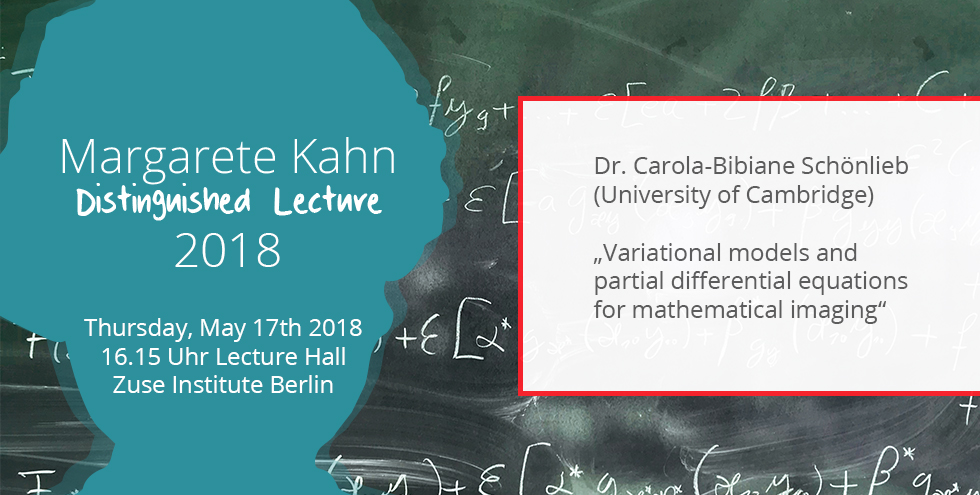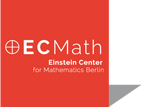Margarete Kahn Distinguished Lecture
The Margarete Kahn Distinguished Lecture features distinguished female mathematicians from all areas of mathematics. The lectures will take place once each term.
According to the topic, it will be hosted by one of the five ECMath institutions FU Berlin, HU Berlin, TU Berlin, WIAS, or ZIB.
We warmly welcome not only senior scientists, but in particular also students and post-docs.
This distinguished lecture series is in line with our endeavour to promote career paths in mathematics especially for talented female students and scholars by featuring successful female mathematicians, and thereby showcasing role models for current and future generations. It is set up to honor Dr. Margarete Kahn, an excellent mathematician, whose scientific career was denied her as a woman.
Upcoming Events
#1 Margarete Kahn Distinguished LectureMay 17, 2018 from 16:00-18:00
Hörsaal ZIB
Topic: Variational models and partial differential equations for mathematical imaging
Speaker: Carola-Bibiane Schönlieb (University of Cambridge)
Carola-Bibiane Schönlieb is a Reader in Applied and Computational Mathematics at the Department of Applied Mathematics and Theoretical Physics at the University of Cambridge (UK). There she heads the Cambridge Image Analysis Group, is Director of the Cantab Capital Institute for the Mathematics of Information and of the EPSRC Centre for Mathematical Imaging in Healthcare, and a Faculty Fellow of the Alan Turing Institute.
Abstract:
Images are a rich source of beautiful mathematical formalism and analysis.
Associated mathematical problems arise in functional and non-smooth analysis, the theory and
numerical analysis of partial differential equations, harmonic, stochastic and statistical analysis, and optimisation.
Starting with a discussion on the intrinsic structure of images and their mathematical representation,
in this talk we will learn about variational models for image analysis and their connection to
partial differential equations, and go all the way to the challenges of their mathematical analysis as well as the
hurdles for solving these - typically non-smooth - models computationally.
The talk is furnished with applications of the introduced models to image de-noising, motion estimation and segmentation,
as well as their use in biomedical image reconstruction such as it appears in magnetic resonance imaging.
Scientific committee:
- Gitta Kutyniok (TU Berlin)
- Heike Siebert (FU Berlin)
- Caren Tischendorf (HU Berlin)


